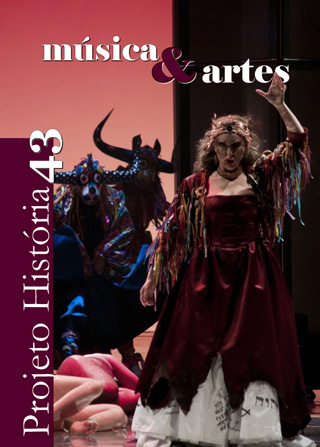“Eternal Vagabond”: rogues, clown and backwoodsman in the Chanchada World
Keywords:
National Identity, Chanchada, Malandro, Clown, CaipiraAbstract
This essay analyses the role played by the personas of the malandro (“rogue”), the clown and the caipira (“backwoodsman”: in Brazil it is a derogatory term used to designate rural inhabitants of less advanced areas, implying lack of instruction, means and manners) in the brazilian national cinematographic imaginary, whilst bearing in mind their representations in the folklore, music and circus-theater. Beyond the symbolic place occupied by the chanchada – a type of fictional comedy very popular in Brazil during the 1950s – in such imaginary constitution of the Brazilian national identity, we have highlighted the struggle for political and cultural hegemony, featured by the paulista and carioca cinemas, represented by Vera Cruz and Atlântida, respectively. In order to understand such dynamics, this analysis starts at 1950s and goes back to early 20th century, time in which the brazilian cultural and entertainment industry started to be formed and developed.Metrics
Metrics Loading ...
Downloads
Published
2012-04-10
How to Cite
Rocha, G. (2012). “Eternal Vagabond”: rogues, clown and backwoodsman in the Chanchada World. Projeto História : Revista Do Programa De Estudos Pós-Graduados De História, 43. Retrieved from https://revistas.pucsp.br/index.php/revph/article/view/6520
Issue
Section
Artigos
License
Copyright (c) 2012 Projeto História : Revista do Programa de Estudos Pós-Graduados de História

This work is licensed under a Creative Commons Attribution 4.0 International License.

Este obra está licenciado com uma Licença Creative Commons Atribuição 4.0 Internacional.




